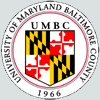| |||||||||||||||||||
Tips:  Range on the Protein: Protein ID Protein Position Domain Position: 
|
|---|
Weblogos are Copyright (c) 2002 Regents of the University of California
| DMDM_info@umbc.edu | 1000 Hilltop Circle, Baltimore, MD 21250 | Department of Biological Sciences | Phone: 410-455-2258 |




 N-terminal domain of the protein encoded by the Drosophila tweety gene and related proteins, a family of chloride ion channels. The protein product of the Drosophila tweety (tty) gene is thought to form a trans-membrane protein with five membrane-spanning regions and a cytoplasmic C-terminus. This N-terminal domain contains the putative transmembrane spanning regions. Tweety has been suggested as a candidate for a large conductance chloride channel, both in vertebrate and insect cells. Three human homologs have been identified and designated TTYH1-3. TTYH2 has been associated with the progression of cancer, and Drosophila melanogaster tweety has been assumed to play a role in development. TTYH2, and TTYH3 bind to and are ubiquinated by Nedd4-2, a HECT type E3 ubiquitin ligase, which most likely plays a role in controlling the cellular levels of tweety family proteins.
N-terminal domain of the protein encoded by the Drosophila tweety gene and related proteins, a family of chloride ion channels. The protein product of the Drosophila tweety (tty) gene is thought to form a trans-membrane protein with five membrane-spanning regions and a cytoplasmic C-terminus. This N-terminal domain contains the putative transmembrane spanning regions. Tweety has been suggested as a candidate for a large conductance chloride channel, both in vertebrate and insect cells. Three human homologs have been identified and designated TTYH1-3. TTYH2 has been associated with the progression of cancer, and Drosophila melanogaster tweety has been assumed to play a role in development. TTYH2, and TTYH3 bind to and are ubiquinated by Nedd4-2, a HECT type E3 ubiquitin ligase, which most likely plays a role in controlling the cellular levels of tweety family proteins. No pairwise interactions are available for this conserved domain.
No pairwise interactions are available for this conserved domain.

















